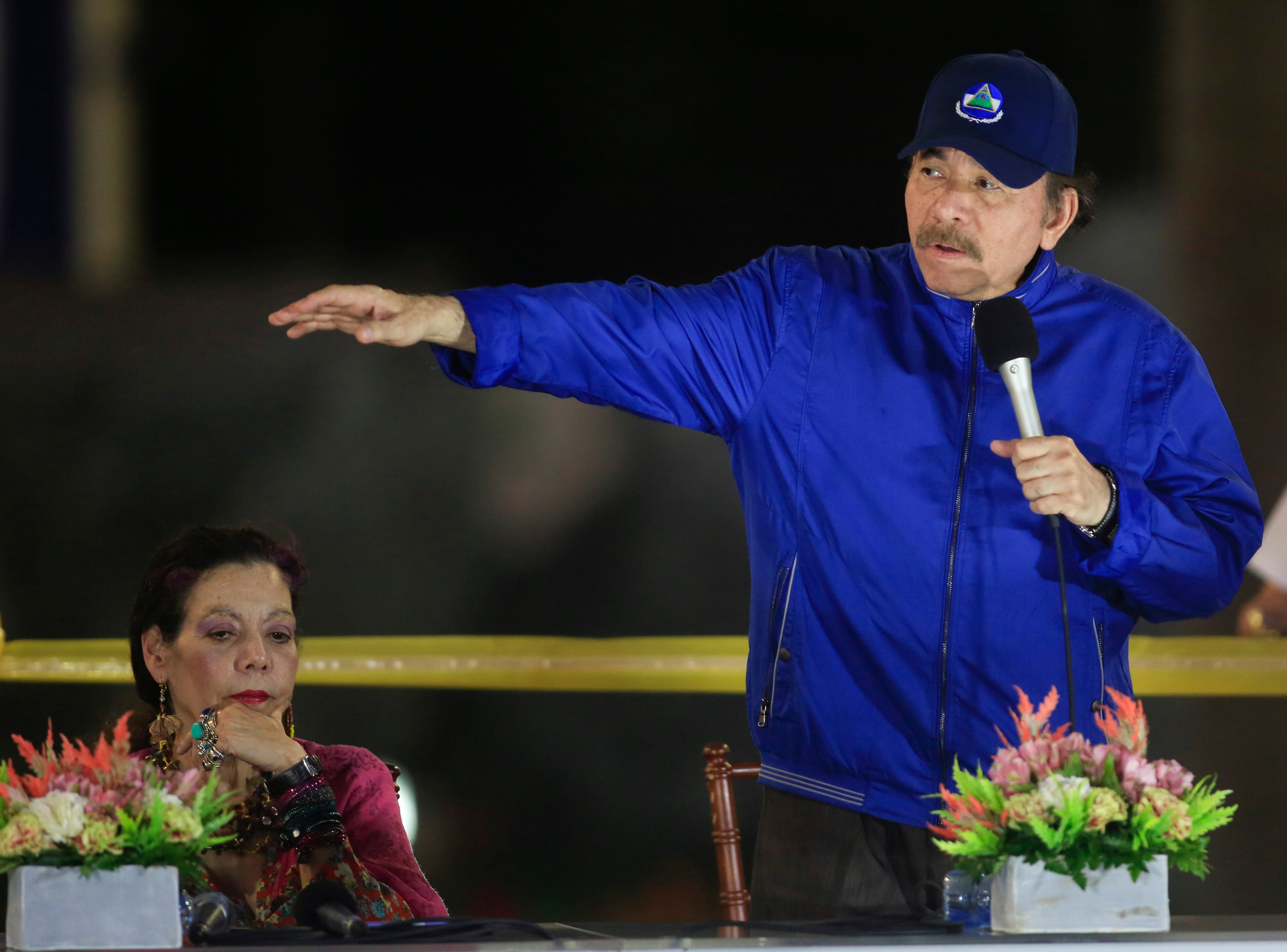Nicaragua arrests more opposition leaders in crackdown
The government of Nicaraguan President Daniel Ortega has arrested an opposition leader and police have surrounded the home of another

Your support helps us to tell the story
From reproductive rights to climate change to Big Tech, The Independent is on the ground when the story is developing. Whether it's investigating the financials of Elon Musk's pro-Trump PAC or producing our latest documentary, 'The A Word', which shines a light on the American women fighting for reproductive rights, we know how important it is to parse out the facts from the messaging.
At such a critical moment in US history, we need reporters on the ground. Your donation allows us to keep sending journalists to speak to both sides of the story.
The Independent is trusted by Americans across the entire political spectrum. And unlike many other quality news outlets, we choose not to lock Americans out of our reporting and analysis with paywalls. We believe quality journalism should be available to everyone, paid for by those who can afford it.
Your support makes all the difference.The government of Nicaraguan President Daniel Ortega has arrested an opposition leader and police surrounded the home of another on Sunday.
The moves over the weekend suggest Ortega has moved beyond arresting potential opposition candidates in the Nov. 7 elections, and has begun arresting any prominent member of the opposition.
“It's not just potential candidates any more, it's political leaders,” said former general and Sandinista dissident Hugo Torres. “This is not a transition to dictatorship, it is a dictatorship in every way.”
On Saturday, police arrested Tamara Dávila, who was active in Unamos, a movement formed by former Sandinistas angered by Ortega’s autocratic ways, nepotism and perpetual re-elections.
Police said they arrested Dávila on charges related to a recently enacted law that classifies as treason any support for sanctions against officials in the Ortega regime; the U.S. has slapped sanctions on dozens of officials.
Davila is also a central figure in the opposition coalition Blue and White Nationality Unity, which was formed following Ortega's repression of mass protests in 2018.
On Sunday, police surrounded the home of another prominent ex-Sandinista dissident, Dora María Téllez. Drones were seen flying over the property, where another opposition leader, Ana Margarita Vijil, is also staying.
Any arrest of Tellez would be a major step: she was a leading Sandinista militant who led an assault on the National Palace in 1978, taking Somoza’s congress hostage. Like many former guerrillas, she later split with Ortega.
Ortega has already arrested four potential opposition candidates who might have challenged his bid for a fourth consecutive term, and now many Nicaragua opposition leaders fear it is only a matter of time until police come for them, too.
Torres said he has seen drones flying around his home in recent days, of the type used at Tellez's house.
“This interview may be the last one I give,” Torres said. “I am here, waiting for them to come for me.”
Nicaragua’s National Police have arrested four opposition pre-candidates this month.
On June 8, they arrested pre-candidate Félix Maradiaga, a pre-candidate for the opposition coalition Blue and White National Unity, and Sebastián Chamorro, a former director of the opposition coalition Civic Alliance.
The previous week authorities detained Cristiana Chamorro, a cousin of Juan Sebastián Chamorro, and Arturo Cruz Sequeira, a former ambassador to the United States who was arrested Saturday under a controversial “treason” law passed in December.
Ortega initially led Nicaragua from 1979 to 1990 following the Sandinista revolution that ousted the dictator Anastasio Somoza. He returned to the presidency in 2007 after three failed election attempts, and he won reelection in 2011. He then sidestepped term limits to get himself reelected in 2016, and packed courts and government agencies with allies. The Sandinista party controls the courts and the legislature, and has stifled universities and the Roman Catholic church.
Torres said Ortega has now instituted a more suffocating dictatorship than Somoza, who faced opposition from the within the church, intellectual circles and universities.
“I think Ortega has outdone Somoza,” said Torres. “He has subordinated all the power to himself as Somoza never could. He has a bigger repressive apparatus than Somoza ever had.”
Julie Chung, the U.S. State Department’s acting assistant secretary for Western Hemisphere affairs, said via Twitter recently that the arrests “confirm without a doubt that Ortega is a dictator. The international community has no choice but to treat him as such.”